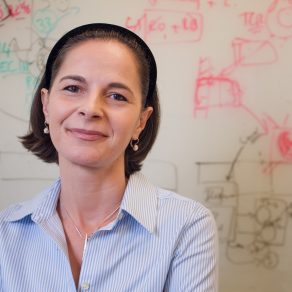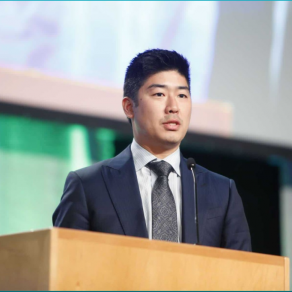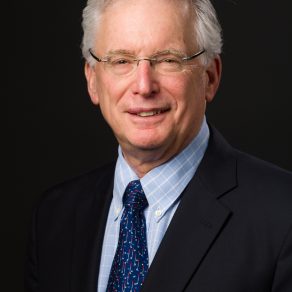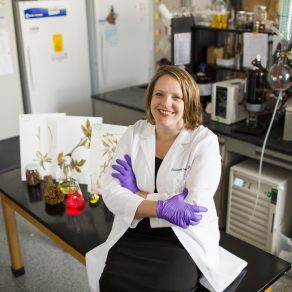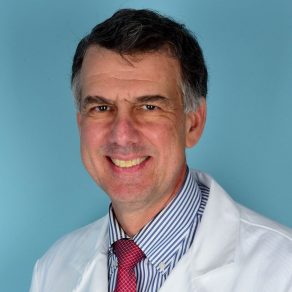Throughout the years, the SID has encouraged meeting between Residents and Post-Doc Fellows. To continue this promotion of collegiality, the SID presents a Trainee/Faculty Breakfast – small group discussions in which senior and junior faculty Residents, Pre-Doctoral Students and Post-Doctoral Fellows-discuss issues in an informal atmosphere. These gatherings provide an opportunity to talk informally about subject matters of interest including research opportunities in dermatology, life in academia or how to combine clinical work with research.
Participants will have the opportunity to meet with an international group of leaders in the field of dermatologic research. They will discuss topics such as advantages of careers in research and opportunities for advancement in academic careers. A strong emphasis will be made for retreat attendees to network with their peers across all three (3) Societies, SID, ESDR and JSID, and with the mid-level faculty from all societies.
Participants will have the opportunity to meet with an international group of leaders in the field of dermatologic research. They will discuss topics such as advantages of careers in research and opportunities for advancement in academic careers. A strong emphasis will be made for retreat attendees to network with their peers across all three (3) Societies, SID, ESDR and JSID, and with the mid-level faculty from all societies.
Established in 1988, this award was established to honor the memory of Naomi Kanof, MD. The Naomi M. Kanof Lectureship honors an individual making significant contributions to the improvement of health through
clinical research. Clinical research is broadly defined as any scientific endeavor with a direct application to improving the prevention, diagnosis or treatment of clinical disease. This investigative work can be
based in the laboratory and should be implemented or just ready to be implemented in clinical practice.
The Julius Stone Lectureship is intended to promote the advancement of knowledge in immunology as it relates to the skin and skin disease. The Lectureship is intended to honor Dr. Julius Stone, whose great commitment to the application of new principles of immunology to the benefit of patients with skin disorders is recognized by this award.
The William Montagna Lecture is given annually at the Society’s Annual Meeting. This award is intended to honor and reward young active investigators. Primary emphasis is given to researchers in skin biology.
– Poster #’s 002 – 348 Even
– Poster #’s 351 – 697 Odd
– Late Breaking Poster #’s 1046 – 1144 Even
Selected ePoster Discussions will take place on iPad terminals outside the Poster/Exhibit Hall. The discussions will be thematic tours of selected electronic posters accompanied by a presenting author. Each poster presenter will be asked to briefly describe their work (3 min), followed by a short group discussion (3 min), that will be held with the help of a moderator.
* Adaptive and Auto-Immunity: Stevens Salon D
* Genetic Disease, Gene Regulation, and Gene Therapy: Continental A
* Growth Factors, Cell Adhesion, and Matrix Biology: Continental C
* Interventional Studies, Clinical, and Patient Reported Outcomes: International South
* Photobiology: Continental B
Studies of adaptive immune responses involving T and B lymphocytes, dendritic cells, other antigen presenting cells, and antigen processing and presentation; Basic and pre-clinical experimental studies focused on autoimmunity
Studies on cutaneous gene expression and genetic diseases including gene therapy (Cancer-related genetic studies are more appropriate for Carcinogenesis and Cancer Genetics)
Studies on growth factors and the interactions of cells with their local cellular and extracellular environment that affect signaling, adhesion, migration and development
Studies involving interventional trials, clinical outcomes and patient reported outcomes research
Studies on biological, biochemical, and molecular responses to ultraviolet radiation in cells, animals and humans
Studies involving model systems of skin disease including organotypic, innovative murine models, xenograft studies, 3-dimensional tissue culture approaches and ‘omics approaches for predicting biomarkers of disease
The Stephen Rothman Memorial Award is presented annually for distinguished service to investigative cutaneous medicine. The recipient of this award has made major scientific achievements and excelled as a teacher and recruiter of outstanding dermatologists. The recipient is an individual who has distinctly altered the course and image of dermatology or its allied fields. It is the Society’s highest award.
Selected ePoster Discussions will take place on iPad terminals outside the Poster/Exhibit Hall. The discussions will be thematic tours of selected electronic posters accompanied by a presenting author. Each poster presenter will be asked to briefly describe their work (3 min), followed by a short group discussion (3 min), that will be held with the help of a moderator.
* Carcinogenesis and Cancer Genetics: Continental A
* Epidemiology: Stevens Salon D
* Epidermal Structure and Barrier Function: International South
* Neuro-Cutaneous Biology and Inflammation: Continental C
* Pharmacology and Drug Development: Continental B
– Poster #’s 001 – 349 Odd
– Poster #’s 698 – 1094 Even
– Late Breaking Poster #’s 1047 – 1143 Odd
Selected ePoster Discussions will take place on iPad terminals outside the Poster/Exhibit Hall. The discussions will be thematic tours of selected electronic posters accompanied by a presenting author. Each poster presenter will be asked to briefly describe their work (3 min), followed by a short group discussion (3 min), that will be held with the help of a moderator.
* Innate Immunity, Microbiology, Microbiome: Stevens Salon D
* Pigmentation and Melanoma: International South
* Skin, Appendages, and Stem Cell Biology: Continental B
* Tissue Regeneration and Wound Healing: Continental C
* Translational Studies: Continental A
This award is given in recognition of Dr. Herman Beerman’s long and devoted service to the SID and his efforts to secure for it a position of respect in the scientific community. The Herman Beerman Lecture is given by a distinguished medical scholar traditionally from fields other than dermatology affording attendees the opportunity to learn about scientific advances in other fields.
The Eugene M. Farber endowment was established by the family of Eugene M. Farber, MD, who devoted his scientific career to understanding the pathogenesis of psoriasis. In 2007, the SID Board of Directors voted
to create the Eugene M. Farber Endowed Lecture. It is presented at the Society’s Annual Meeting by an investigator whose work is relevant to expanding our insights into the pathophysiology and treatment of
psoriasis.
Studies on the genetics and other causes of cancer as well as mechanisms relevant to metastasis (Abstracts on therapeutics and clinical trials in skin cancer should be submitted to Translational Studies)
Epidemiological research on any aspect of skin disease
Research on the components or regulation of keratinocyte proliferation, differentiation, including epidermal barrier function
Basic, pre-clinical and clinical studies on skin inflammation, crosstalk between the nervous and immune systems, and the relationship between cutaneous nerves and all aspects of skin biology including itch, pain, skin homeostasis and development
Basic and preclinical studies aimed at developing therapeutics, elucidating their mechanisms of action, and identifying biomarkers of drug activity
Studies of the pathogenesis or treatment of skin diseases that disproportionately affect patients from, or are more severe in their manifestation in, racial/ethnic groups with skin of color; such as keloids, scarring alopecias, disorders of pigmentation, systemic lupus erythematosus, dermatomyositis, among others
The SID leadership has arranged for a private reception at the Hilton Chicago for those registered as Residents, Post-Docs, and Students. The evening will provide attendees the opportunity to informally network with your peers.
Established in 2007 by Dr. Phillip Frost, the lectureship is intended to honor Dr. Albert M. Kligman, whose great commitment to dermatology and numerous contributions to the specialty has inspired generations of researchers and practitioners. The award is made to an individual in acknowledgement of significant contributions in the past five years to the understanding of structure and function of skin.
Studies of cells, receptors and effector molecules of the innate immune response; studies on skin microbes, microbiome and infectious processes of the skin
Studies on all aspects of cutaneous and extracutaneous pigmentation; molecular cellular and biological facets of melanoma. (Genetic studies on melanoma should be considered for the category Carcinogenesis and Cancer Genetics)
Studies on the hair follicle, sebaceous gland, and other skin appendages; developmental biology of skin and hair; roles of stem cells in pre and post-natal growth and development
Wound healing and regeneration studies; processes/signaling that regulate vascular development and angiogenesis; interactions between different skin components (epithelial cells, dermal cells, nerves, vasculature, melanocytes, fat) in homeostasis and regeneration
